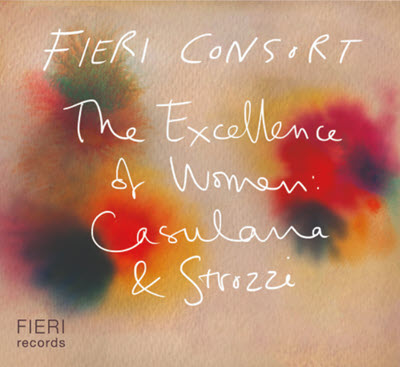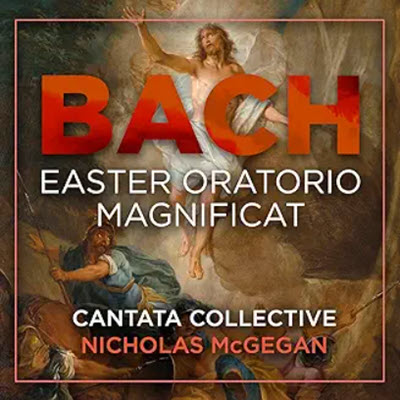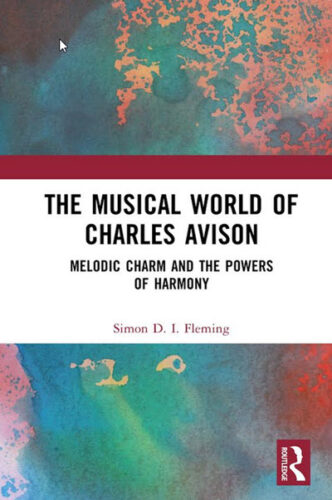by Karen M. Cook
Published July 29, 2024
The Excellence of Women: Casulana & Strozzi. Fieri Consort. Fieri Records FIER005TEW

The sixth and most recent album by the Fieri Consort, a British and Belgian vocal and instrumental ensemble, is named after a treatise published in 1600. Not a musical work, this, but rather the first formal debate treatise ever published by a woman, in which women’s morals and intelligence were praised. It’s a fitting name for this album, as it focuses on selected works by two of the foremost composers of early modern Italy, both of whom happen to be women: Maddalena Casulana and Barbara Strozzi. In fact, Casulana was the first European woman to publish self-attributed music, and Strozzi produced more secular music than any of her peers. And both deliberately set out to show the equality, perhaps even superiority, of female intelligence and musical skill.

Strozzi showcased everything from the more old-fashioned five-voice polyphony of her early madrigals to her stunning array of solo and duo cantatas, ostensibly written for herself. For fans of 17th-century chamber works, her name is likely to at least be familiar. Not so Casulana, who until recently was known only for one of her three books of madrigals. The other two survived only in incomplete form until 2021, when musicologist Laurie Stras discovered the missing alto partbook of Casulana’s book of five-voice madrigals in the Russian State Library. In this new recording, the Fieri Consort premiere Casulana’s lost madrigals for the first time, alongside some of her four-voice madrigals from her third, still incomplete collection (newly completed by Stras) and assorted works by Strozzi. And what a premiere it is.
The ensemble has taken exquisite care to highlight all the various ways in which such works might have been performed in their day — some by voices only, some combining voices and instruments in some fashion, still others by solo voice with instrumental accompaniment, and some by instruments alone. Performing these works in this way, and then staggering the later Strozzi works in between, really showcases not only how musical styles developed between Casulana and Strozzi but also just how many points of connection there are between them.
The album enchants from the start, both by Casulana’s superb polyphonic writing and by the ensemble’s spectacular musicianship. Her “Come fiammeggia e splende” opens the album, and by the time its forceful imitative opening gives way to a sweetly flattering homophonic section, there is little doubt that one is in the presence of greatness. The fascinating harmonic and melodic motion in her “Dolci e vaghi” reminds us that she was writing, and holding her own, alongside the likes of Marenzio, Ingegneri, and Lasso. The ensemble’s approach to her sensitive text-setting in the Petrarchan “Perchè al viso s’Amor portava insegna” is a particular standout.
For Strozzi, the graceful lilt of her setting of her father’s text, “Godere in gioventù,” is decidedly lovely. The upper voices shine in Casulana’s “Tu se Clitia” and Strozzi’s “Le Tre Grazie.” And the instruments accompany with admirable sensitivity and balance, but really step into their own on Casulana’s “Come esser.”
For the new Casulana works alone, the recording would be worth listening to at least once. The quality of the performance, however, makes it much more likely that it will be on constant repeat. An excellent and dare I say necessary addition to anyone’s library.
Karen M. Cook is Associate Professor of Music History at the University of Hartford. She specializes in late medieval music theory and notation, focusing on developments in rhythmic duration. She also maintains a primary interest in musical medievalism in contemporary media, particularly video games. For EMA, she recently reviewed Madrigals from the ‘divine’ Cipriano de Rore.




